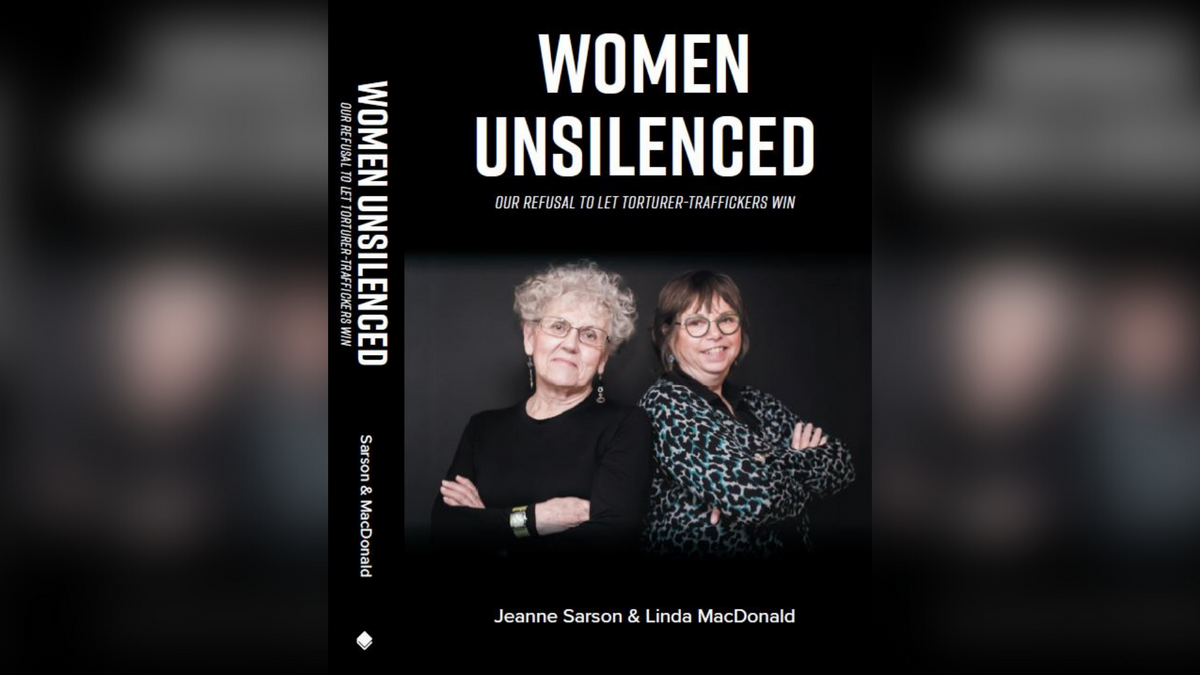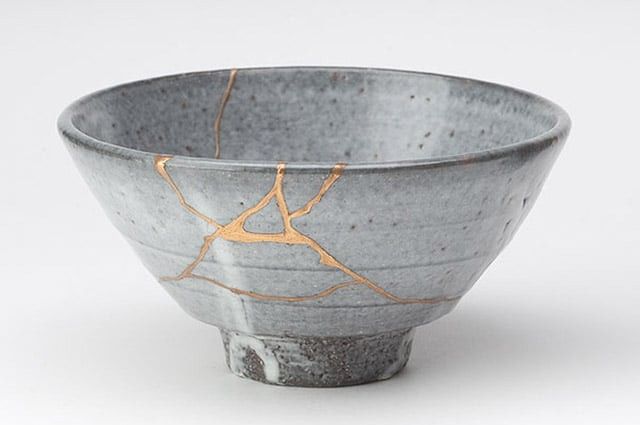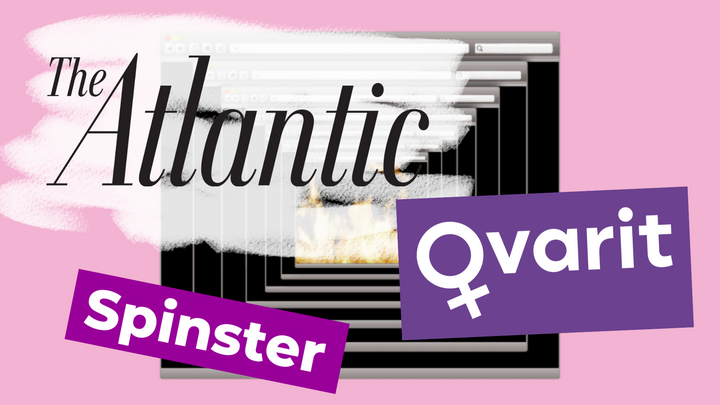New Feminist Book Breaks the Silence on Male Torture of Women
Deemed "too brutal to read," Jeanne Sarson and Linda McDonald's "Women Unsilenced" defies the threat that "No one will believe you."

Jeanne Sarson and Linda MacDonald are the founders of Persons Against Non-State Torture, an organization that, among other things, calls for the legal recognition of non-state torture as a crime. For decades, Jeanne and Linda listened to women telling about their experiences of electric shocking, caging, strangulation, humiliation, bestiality, whipping and caging — to name only the tamest acts. They are now self-publishing a book, "Women Unsilenced: Our Refusal to Let Torturer-Traffickers Win," where they share testimonies and feminist analyses. Their manuscript was rejected by a radical feminist publisher for being too "brutal to read" — an irony for a book that debunks the myth of unspeakable violence.
Abandon hope all ye who enter here
Ordinary people do not know that everything
is possible.
David Rousset – L’univers concentrationnaire, 1946
Years ago at school, my course mates and I were assigned to read two novels by the feminist writer Dacia Maraini. In the first, she recounted her rape. In class discussions, two boys said, “We don’t want to read that” (my mum later commented, “Rejoice over the fact they didn’t masturbate to it”), to which I retorted, “We don’t want to live that.” In the second book, the reader discovers in the end why the main character is deaf and mute: she was a victim of incestuous rape as a girl.
This literal and symbolic silencing of women is what Linda MacDonald and Jeanne Sarson explore in the book Women Unsilenced: Our Refusal to Let Torturer-Traffickers Win. Two public health nurses in Nova Scotia, Canada, their lives change forever when Jeanne received a phone call by a woman named Sara.
Sara is tortured by her close family and by anyone else her family invites or sells her to. Sara says she is “terrified by her decision to live,” as if puzzled by the realization that she’s not obeying her victimizers till the very end. As Linda and Jeanne begin a healing journey with Sara, they discover a world few others are willing to look at because it’s our own — a world no one wants to read about.
Russian Dolls
Women Unsilenced is one of those game-changers. There’s a before and after the book, and that feeling echoes Jeanne and Linda’s life trajectory. The book has a Russian doll structure. The stories of survivors of torture are intertwined with Jeanne and Linda’s biography. Certain statements or quotes reappear throughout the book the way a traumatic event keeps coming up unexpectedly, incessantly in conversations, in your mind, in your dreams. The book feels lengthy at times because when you unleash the words you’ve held back all those years, they just flow like the pain you let go.
The authors certainly don’t make it easier for you than it was for them. The last feminist book that took me so long to read was Pornography: Men Possessing Women by Andrea Dworkin. I could understand the exhaustion that Linda and Jeanne felt after listening to women who endured torture — such is the reflexive character of the book. Jeanne and Linda’s empathy transpires to you. I breathed a sigh of relief towards the end, when the descriptions of torture lessened, thinking: “it’s over.” Their honesty but endless care means they can hold your hand, fully immerse you in Hell and bring you back.
“Speaking is precisely what would allow you to let go of your emotions, but your emotions are too overwhelming for you to speak.”
Women Unsilenced is much more than a collection of testimonies or a methodical analysis of torture. It is a healing book, an experience, a feminist reference. I dare any woman who reads it not to find something that is relevant to her, whether in the coping mechanisms of the women or in the modus operandi of the male torturers. In this review, I cannot do justice to all the lessons I learned.
When Women Speak
The power of speech is obviously central in Women Unsilenced. Any woman knows what speechlessness feels like: this knot in your throat, your inability to explain what is going on, to re-emerge from within to the surface of your skin. The horror of torture silences women both literally and symbolically. Some stutter, others are incapable of talking about it. Self-expression is a road to recovery. It is a way to rebuild a shattered sense of Self: because of the violence, the women who tell their stories in the book no longer knew who they were, sometimes didn’t even know they had skin.
Words, though, only come out when they are ready. There is the Phaedrus paradox, from the Greek tragedy: speaking is precisely what would allow you to let go of your emotions, but your emotions are too overwhelming for you to speak. Women’s writings and drawings in the book — confusing, illegible like a knot tangled too tight to loosen — are testament to that. Readers have to wait for women’s full disclosure, just like Jeanne and Linda did, to understand some of the women’s requests or behavior.
Female victims of torture trust Jeanne and Linda because both have understood and carefully explained the importance of the other side of the equation in testimony: believing. “No one will believe you” is what men keep telling the women and girls they torture. It seems like they make the acts of torture deliberately insidious — unspeakable one might incorrectly say —that it is hard to believe anyone could have thought about doing that to someone else, let alone acted upon it. What’s more, the traditional support system confirms what the torturers say. Met with disbelief, women are reduced to silence.
A Metaphor for Women’s Condition
The male torture of women and girls is a magnifying glass into the operation of patriarchy. Many of the tortured women lead double lives, complying with professional demands but tortured at home. They don’t know they have the option to say no. The torturing men call women “piece of meat,” “nothing,” “fucking shit," "fat," or slut,” exactly like our male culture calls any woman. Even when women are away from their perpetrators, memories hunt them down. All are terrified at the thought of being labelled “crazy.”
“I did not see things for what they were. Was I in zombiehood?” asks Sara. It makes one shudder, for her words reflect our condition as women: unable to see things for what they are because they are too violent to make sense of.
In their exploration of the power of language, Jeanne and Linda meticulously correct torturers’ “coded language.” Torturers ensure girls cannot report the crimes they commit by depriving them of the right words. The writers correctly translate those euphemistic terms whenever women mention them in their testimonies. The innocence of a lollipop, for example, hides the grimness of oral rape. Vagina is called “home” and torture-rape is disguised as a “consummation ceremony.” Again, this language perfectly mimics male culture where “BDSM” obscures torture and girl-prostitution is coated as “sugar daddyism.”
Most importantly, Jeanne and Linda advocate for a correct use of political terms. “Totalitarianism” and “terrorism” are the right terms to use in the context of any form of torture. It is only because traditional political analysis places the state at the center stage that those are not systematically applied to male violence. Here Linda and Jeanne’s analysis echoes Catharine MacKinnon. The state/non-state distinction with torture is irrelevant. Because it’s not the state agents who commit atrocities against women, these acts are not given the political scrutiny they deserve. Think about this way: a policeman tortures a woman in a prison — torture. The policeman removes his uniform, comes home and tortures his wife — not torture. Women Unsilenced has the potential to radically shift our political thinking, finally confirming the primacy of sexual politics. It is high time we finally recognized men and women as major political actors, and what men do to women a political matter.
“Even more jarring than the fact that torture is turned into pornography is men’s laughter at the sight of their victims.”
Similarly, the myth of the individual is a cover for what Jeanne and Linda call “criminal co-culture.” Men who torture women do not act on their own but rely on an unfettering male solidarity to perpetuate what authors of this book call “evilism.” Doctors, policemen (“peace officers”), politicians… all work together or are torturers themselves. Traditional views of prison as four walls cannot account for the captivity of women who grow up in violent families. When you see your perpetrators everywhere, who can you tell?
Women’s suffering is men’s profit. Torturers pimp their daughters. Women who’ve grown in those sadistic families can get caught in a vicious cycle of impulsive shopping. Male-created consumer culture is our impoverishment. Women’s torture is also a source of entertainment. Even more jarring than the fact that torture is turned into pornography is men’s laughter at the sight of their victims. That laughter recurs in women’s testimonies to the point where the reader can almost hear it. Women’s pain is torturers’ pleasure. And here we can debunk the pain-is-pleasure myth: the two can only be simultaneous when two parties are involved, they do not coincide in the single.
Another deeply striking and reoccurring element is women’s visceral fear of becoming like their torturers: “I’m never being like them.” In 1984 by George Orwell, Winston Smith’s compliance is ensured only when he relinquishes his will to protect the one he loves; when he says: “do it to her.” Although torturers’ morbid pleasure knows no boundaries, they seem to particularly enjoy forcing girls to hurt other girls. That sort of torture seems to leave a peculiar scar on women. Carrie, for example, tells that every time she “chose” to smear blood on another girl when offered the “alternative” of eating it herself, she would feel “so guilty, so ashamed, so terrified.”

Healing
I wrote earlier that Linda MacDonald and Jeanne Sarson bring you back from Hell. There is a way forward. “Tell, be believed, heal” could be a motto for recovery. An integral part of it, a “healing necessity” is “social acknowledgement.” Jeanne and Linda also share their legal battles (often in the poorest working conditions) in Canada and at the UN to get non-state torture recognized as a specific crime. In their powerful words: “when there is no law, there is no crime.”
Their “non-state torture victimization-traumatization informed care” is refreshing. Jeanne and Linda refuse to pathologize women. They reject the D in PTSD, preferring Post Traumatic Stress Responses. What I loved the most is the “C word intervention:” challenge. There is no space here for the nauseating Instagram-style “it’s OK not to be OK” or “your feelings are valid” nonsense. The authors stay true to feminist values in their work and in the book. They push women they help to critically examine what men do to them. They remind us that caring requires honesty.
We can deny reality as much as we want, it always resurfaces — just like traumas. Shutting our eyes to torture might initially be comforting but it will never change reality. Reading about such atrocities, I wondered if what distinguishes men from other animals is the former’s capacity to torture. I have also kept asking myself if men are human — the real question. We knew rapists walk among us. We now know some of them are also torturers. Men invented “Hell.” Women know men enacted it on Earth.
Facing reality can be less daunting than it sounds though. A month after finishing the book, having fully digested the facts, I feel a bizarre sense of calm. I have never felt so confident in feminist activism. Knowing that things are really that bad comforted my view that everything, absolutely everything must be changed, started all over again, undone and not redone but created from the start.
The book, self-published with FriesenPress, will be released this autumn. Meanwhile, you can check the website of Persons Against Non-State Torture to learn more about the topic or watch an interview with the authors.
The generous support of our readers allows 4W to pay our all-female staff and over 50 writers across the globe for original articles and reporting you can’t find anywhere else. Like our work? Become a monthly donor!
Enter your email below to sign in or become a 4W member and join the conversation.
(Already did this? Try refreshing the page!)





Comments